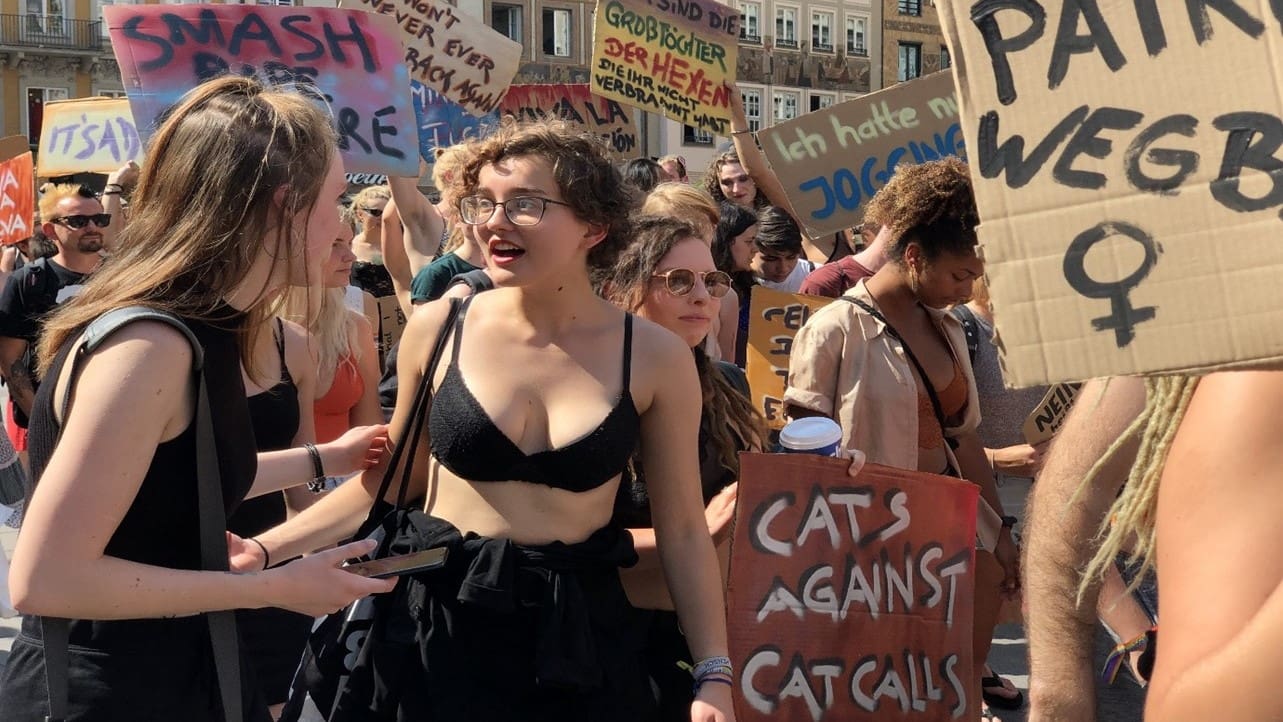In recent days, there has been a growing number of articles reporting on the emergence of a new global divide between young women and young men, particularly in terms of their political orientation. According to an article by the Financial Times, young men around the world are increasingly aligning themselves with right-wing conservatism, while young women are leaning more towards progressivism and liberal values.
Some concrete examples: according to a Gallup poll, women aged 18 to 30 in the US are approximately 30 percentage points more liberal than men in the same age group. This trend is mirrored in Germany, where a 30 percentage point gap exists between increasingly conservative young men and progressively inclined women. Notably, in Germany, young men, particularly in the eastern part of the country, are increasingly aligning with the Alternative for Germany (AfD) party, and hold more stringent views on immigration compared to older age groups. The situation is akin in the UK, with a 25 percentage point gap between these cohorts. Poland also witnessed a noticeable widening gap in last October’s elections, as young Polish men overwhelmingly supported the right-wing—albeit more economically liberal—Confederation Party in greater numbers than their female counterparts.
Beyond Europe, the situation becomes even more dramatic, as highlighted by Financial Times, citing China, South Korea, and Tunisia as notable examples. In each of these countries, the observed trend is either exclusive to the younger generations or significantly more pronounced compared to men and women in older age groups.
The series of articles does not provide a satisfactory explanation as to why the young generation is becoming increasingly polarized and why this polarization is most marked between the sexes.
Many see the launch of the #MeToo movement in 2017 as a turning point in the widening of the gap.
The movement, which started with the Harvey Weinstein sexual harassment scandal, has spread like wildfire from the US to Europe.
The many positive effects of #MeToo are undeniable: there have been numerous cases where individuals at the centre of the allegations have been found to have abused their positions of power, ruining countless lives, and workplaces have become more serious about addressing such complaints. However, there have also been instances of false accusations made against men in leadership positions since the movement’s inception. A prime example is the case of Alan Dershowitz, a prominent American lawyer who was falsely accused—and later proved innocent—but whose career was still adversely affected. Since the #MeToo movement began, there have been countless reports and surveys showing that a significant number of young men fear being falsely accused by their female colleagues, potentially ruining their careers. According to a 2019 article in the New York Post, for example, 60 per cent of male executives are reluctant to work with female colleagues for fear of being accused.
Indeed, this factor may contribute to young men leaning towards preferences on the right side of the political spectrum. In many cases, left-wing press and politicians tend to immediately side with the ‘victim’ before confirming the veracity of reported harassment. (A salient counterexample is that of the rape and brutalization of Israeli women by Hamas, which tends to be denied and relativized.) On the other hand, the right-wing press generally approaches these situations with detachment until the allegations are proven.
The rise of #MeToo has coincided with the surge of a new wave of feminism, and the associated hype has naturally been intertwined with the LGBTQ movement and gender ideology. Phrases like ‘toxic masculinity’ have emerged, seemingly serving no purpose other than to justify the ideology and completely ‘de-masculinize’ men. According to a recent survey conducted in collaboration with King’s College London, 37 per cent of British men aged 16 to 29 find the term ‘toxic masculinity’ unhelpful, which is double the proportion among women in the same age group. The research indicates that male members of Generation Z (those born between 1995 and 2009) hold a significantly more negative view of feminism than their older counterparts.
The progressive, liberal side consistently embraces ideologies perceived as harmful by many young men,
whether it be radical feminism or LGBTQ and gender ideology. The survey mentioned earlier highlights a noteworthy shift among young men in Britain, reflecting an increasingly positive view towards opinion leaders who reject and oppose these ideologies. Notable figures such as Canadian author and academic Jordan B. Peterson or kickboxing world champion turned internet opinion leader Andrew Tate are gaining favour among this demographic, as indicated by the survey.
This brings us to another significant factor contributing to the polarization of young generations—social media. Given that Generation Z members spend substantial time on platforms like TikTok, the content they consume here plays a crucial role in shaping their worldview.
While information is now available on an unprecedented scale, social media’s algorithms play a role in limiting the diversity of perspectives encountered.
The algorithms recommend content similar to what users have already seen, creating a filter bubble that reinforces existing political, cultural, and social worldviews. This insular process can lead individuals to believe their worldview is the only correct one, dismissing anything contradictory as wrong.
The potential consequences of the political divide between men and women in Generation Z should not be underestimated. South Korea serves as an extreme example in South-East Asia, where the negative effects are already evident. The marriage rate in South Korea has been sharply declining, with the number of births per woman dropping to 0.78 in 2022—currently the lowest in the world. This trend, if continued, poses dangers that can be extrapolated from the South Korean experience. In a Western world grappling with a demographic crisis, no country can afford to pit young men and women against each other for political and ideological reasons, risking decreased marriage rates and declining birth rates. Such a scenario would ultimately threaten the very fabric of Europe as we know it.
The solution to reversing this trend, if it is reversible at all, remains unknown. A crucial initial step involves having strong national governments capable and willing to confront LGBTQ and gender ideology, which fuels the growing divide. Hungary stands out as one of the few European countries taking action, implementing a child protection law—constantly criticized by the left—that prevents the indoctrination of children, allowing for an education free of gender ideology.
Expanding such practices beyond Hungary could help counter the prevailing gender discourse in various aspects of society, from media and politics to entertainment, potentially contributing to bridging the gap between young men and women.
Related articles:








